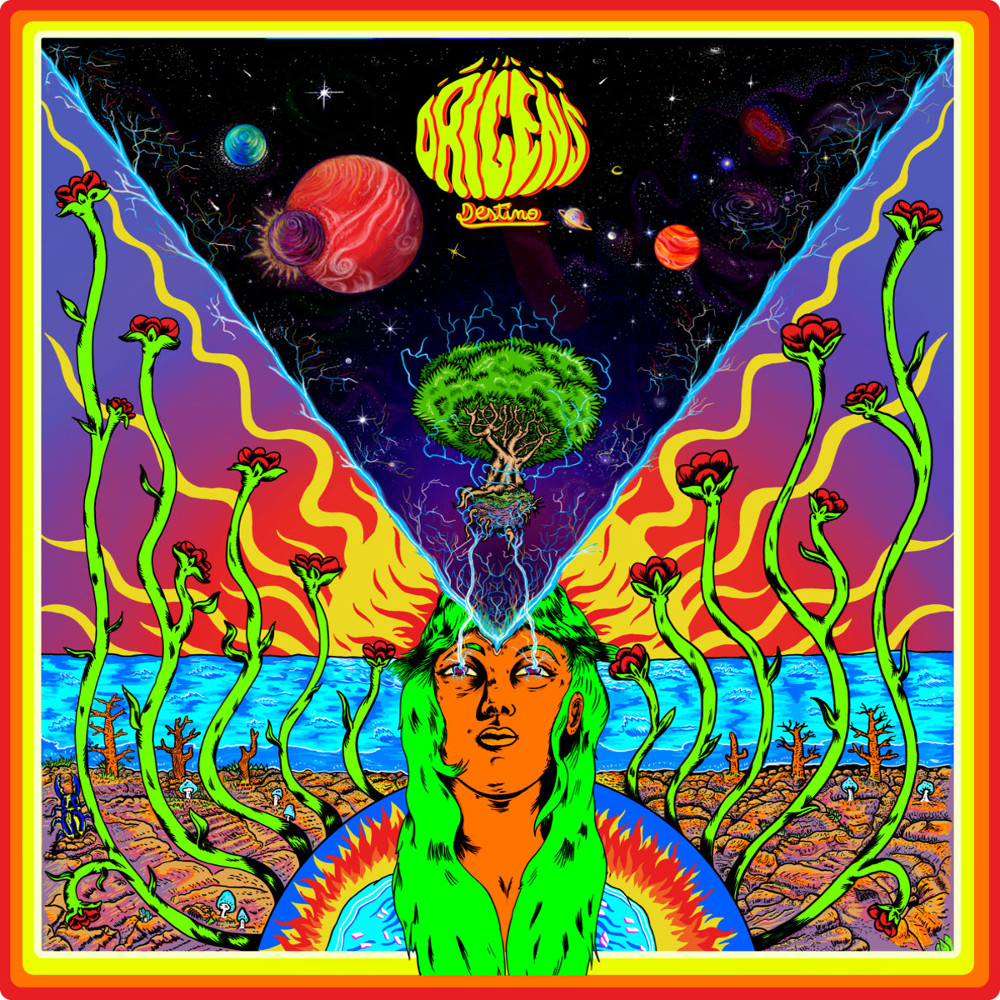 |
Country: Portugal
Style: Psychedelic Rock
Rating: 7/10
Release Date: 11 Jul 2019
Sites: Bandcamp | Facebook | Youtube
As if to emphasise the impression that nobody in Portugal seems interested in making any sort of music except instrumental psychedelic rock, here's a nice example (another nice example!) of that genre, this time from Braga, not too far from the northern border with Galicia. While it does heat up at appropriate points, much of it is laid back and the obvious comparison has to be Pink Floyd, even if the second and third tracks weren't called Floyds I and Floyds II as a giveaway.
This isn't the nine parts of Shine On You Crazy Diamond, extended to almost fifty minutes and with no vocals at all, but you wouldn't be too far wrong if you imagine that. Certainly the eighteen minutes of Floyds I and II tend to explore that sort of tone, but the style doesn't stay there and the fine keyboard work of Gonçalo Palmas doesn't fit that sort of song. This is both rockier and jazzier, those keyboards often being in that heavy organ style of the early seventies.
For a while in Floyds I, though, I was waiting for the moment when I could start singing, "Remember when you were young". It kept almost arriving but it never quite did, before the song started to explore other destinations. About four minutes in, it livens up and Crazy Diamond could never have had that, given its subject. As much as I like everyone here, I really enjoyed those keyboards, which add an extra dimension to the song.
Floyds II is my favourite here, though it's also the most familiar. It finds a groove almost immediately that emulates that of the cover of Bob Dylan's Going Going Gone which Bill Frisell, Robin Holcomb and Wayne Horvitz played on the Rubáiyát album to celebrate the 40th anniversary of Elektra Records. Find it. Trust me.
Beyond being reminiscent of one of the most exquisitely beautiful songs ever recorded, it's somehow deliciously laid back and subtly progressive at the same time. There are points that remind of King Crimson: chords and changes, as well as the windchimes that are such a tasty touch four minutes in. This one livens up too, an important thing here because each of the five songs on this album last around ten minutes and they need that breathing room.
Duna follows on well. Again, there's that laid back jazz influence but this one has a dalliance with lounge music, as filtered through progressive rock. It's like Focus landed a residence in Las Vegas. Black Acid, Pink Rain gets a lot heavier but it never sheds that mindset. The delightful drums of João Costa kick it off like that Focus residency in Vegas turned out to be in a tiki room and they had to add exotica into the mix. Those keyboards are an emphatic driving force here, but I often got caught up in the roaming bass of Rui Silva.
For those of you paying close attention, I haven't mentioned the guitar yet. Most psychedelic rock albums nowadays are driven by their guitar, often an overtly fuzzy lead. Jorge Lopes does a great job here, but that's not what he's playing. While he's happy to solo away whenever needed, he's a subtle and unselfish guitarist and this album benefits as much from what he doesn't play as what he does.
If that sounds oddly contrary, that's this album through and through. It's a beautiful record worthy of solid exploration, but it's also an album that is easily lost. It can drift away from us, not because it's unworthy background music but because it's worthy background music for a weird trip, especially once those keyboards really start pushing on the title track. I think it's best heard in the wee hours of the morning on a pair of good headphones. I'm planning to try that tonight.























